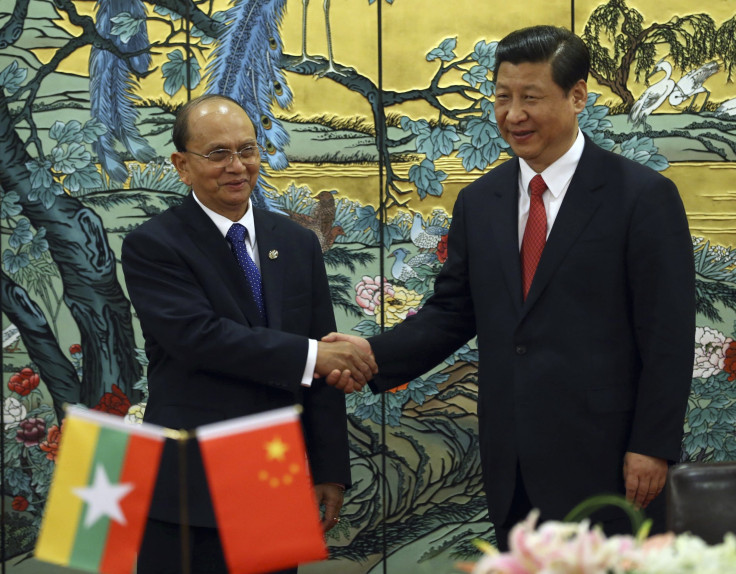Myanmar Foreign Direct Investment: China, Thailand, Hong Kong Biggest Cumulative Investors

Mainland China, Thailand and Hong Kong are the biggest investors in Myanmar, with $14.19 billion, $9.98 billion and $6.39 billion of cumulative investments, respectively, according to a PricewaterhouseCoopers (PwC) report. The Myanmar government is preparing to establish a stock exchange, as well as prepare a new foreign investment law that will offer tax breaks and other incentives for foreign investors.
The stock exchange is expecting its first IPO by October 2015, said Jasmine Aung, Myanmar Director at PwC, according to the South China Morning Post.
In addition to tax breaks, the foreign investment law is expected to allow foreign investors to lease private land, and repatriate investment proceeds using market exchange rates, the PwC report said.
Myanmar has become an investment hub recently, as its democratic government takes steps to open up the economy. The country attracted nearly half a billion dollars in FDI in the month of June alone. Total foreign investment has reached over $42 billion, from 32 countries.
The power sector has received the most cumulative foreign investment, $19.24 billion, followed by oil and gas at $14.37 billion, according to Aung.
Investors have been concerned, however, with Myanmar’s lack of infrastructure and policies regulating investment, and worry the country cannot keep up with the amount of funds pouring in.
"Myanmar's GDP is expected to grow 6.3 percent this year, driven by improved business confidence following recent political and economic reforms. However, short-term risks to growth include the rapid appreciation of the kyat," the report said.
In 2011, China surpassed Thailand to become the biggest foreign investors in Myanmar.
While most of the investment in Myanmar comes from its Asian neighbors currently, Western companies will not be far behind in rushing to Myanmar.
The Coca-Cola Company (NYSE:KO) announced plans to invest $200 million in Myanmar over the next five years, creating 2,500 direct jobs and 22,000 more indirect jobs, according to the Financial Times. Ford Motor Company (NYSE:F) opened a new showroom in the Myanmar capital of Yangon. Unilever (NYSE:UN) has also opened a factory and will begin to produce food seasoning next month.
Last week, executives from more prospective investors arrived in Yangon to attend the World Economic Forum’s Asia gathering. Leaders from Microsoft Corporation (NASDAQ:MSFT), Chevron Corporation (NYSE:CVX), Mitsubishi Corp. (TYO:8058), Citibank, Philips (NYSE:PHG), General Electric (NYSE:GE), Visa (NYSE:V) and Mastercard International (NYSE:MA) met with local figures including President Thein Sein, and democratic opposition leader Aung San Suu Kyi.
Leaders of these major companies think it’s the right time to expand into Myanmar, as the country is poised to grow at an unprecedented rate. By McKinsey & Co.’s estimation, Myanmar could potentially bring its $45 billion economy to more than $300 billion in 2030.
“It was time,” said Harjit Gill, regional CEO of Philips, in reference to the launch of Philips’ first electronics shop in Yangon. “This country is in a fantastic position to leapfrog -- we want to be here.”
That is certainly what the new democratic government wants, too.
“Our country used to be isolated,” said President Thein Sein at the World Economic Forum, according to the Marketing Magazine. “Now we are getting back to our right place in the world.”
© Copyright IBTimes 2024. All rights reserved.




















